EXCLUSIVE INTERVIEW
ALEX WYSE
From "Spring Awakening" To
"Good Night Oscar"
Conducted by Guillaume Jean Lefebvre
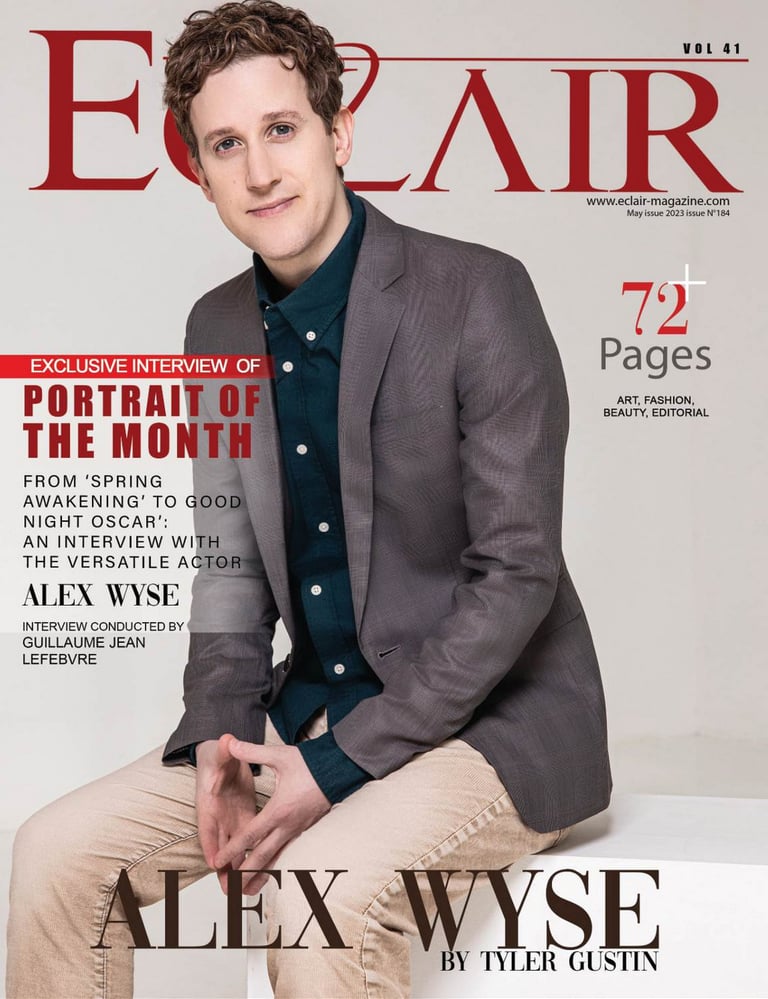

1. First of all, thank you so much for your time. We're excited to learn more about your journey. Could you share an anecdote about your experience in the musical Spring Awakening?
Thank you for having me! Spring Awakening was such an extraordinary experience. One of my favorite parts was the American Sign Language (ASL) boot camp we had during our first week. It was a profound experience being thrown into the deep end of an ASL musical and coming together as an ensemble. Of course, we learned the profanity first, then our lyrics and lines. Then, our hearts started bursting wide open, and all of us - Deaf and hearing cast members alike - learned to communicate in new ways. That was just the start of the adventure!
2. What was it like performing at the 70th Annual Tony Awards with the cast of Spring Awakening?
Before we went on stage, our director Michael Arden advised us to take a mental snapshot of the moment since it goes by so quickly. I did my best to do exactly that, and then I clenched my fists and prayed I wouldn't mess up a performance that would essentially live on forever. It was scary, a bit somber as we were coming together five months after we closed, but I was proud to be a part of the telecast that was so massively important to me growing up.
3. How did you first become interested in acting, and what inspired you to pursue it as a career?
I've loved theatre since I was a little kid and first knew what it was. All I wanted to do was jump up on that stage and be a part of that magic. I was in my first play when I was six, and I just never stopped. It was like breathing, except sometimes you inhale glitter and accidentally choke. Jokes aside, every day that I get to do this is the greatest privilege, and I do everything I can to rise to the occasion.
Discover the exclusive interview with accomplished actor, Alex Wyse, as he reflects on his career from his debut in "Spring Awakening" to his latest role in "Good Night Oscar". In an honest and captivating conversation, Wyse shares his most memorable moments, challenges, and successes. Immerse yourself in the world of this fascinating celebrity and uncover the secrets of his unique journey.
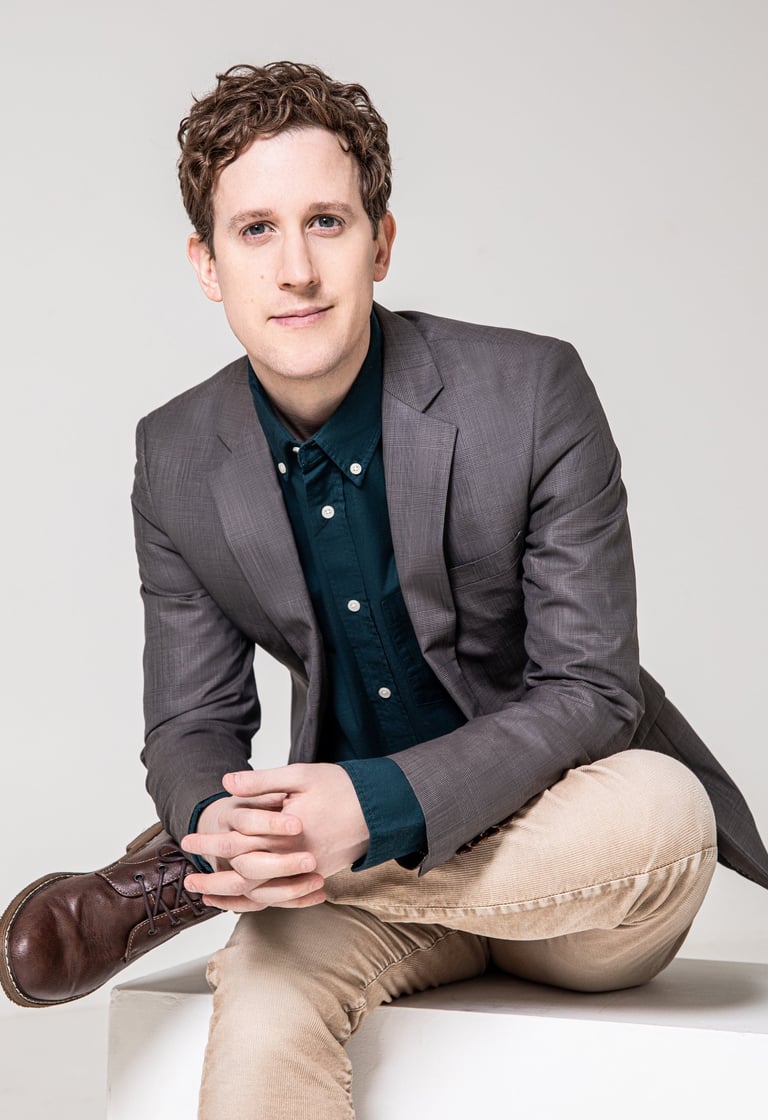

Portrait Of The Month ( May 2023)

INTERVIEW
4. What is it like performing in the highly-anticipated Broadway production of Good Night, Oscar alongside Sean Hayes?
It's been a dream come true. Sean couldn't be a better leader. He is kind, funny, collaborative, and truly brilliant in the play. Not to mention, he's been one of my heroes since I was a kid. Now, to be his friend and coworker is quite profound for me. Don't let him read this. I'll never live it down.
5. What drew you to the character of Max and the story of Good Night, Oscar?
Max is funny, eager, and passionate about movies. He also rocks a hard side-part in his hair. When I read the play, I thought: This guy is me.
6. Can you share any behind-the-scenes anecdotes from your time working on Good Night, Oscar so far?
Recently, the crew had to take out the first few rows of seats to move equipment through the space. That meant there was a large, empty carpeted area left behind. So, a few of us laid down on the floor and stared up at the ornate ceiling of the Belasco Theatre. It's not the kind of view you get every day.
7. How did you come up with the idea for Summoning Sylvia?
During the 2020 lockdown, Wesley Taylor (my creative partner, co-director/co-writer on the film) and I got into horror movies. We were looking for our next project, and we thought, what if we took our funny queer characters and dropped them into a spooky house? What would happen then? From there, we worked hard to develop a twisty/turny tale that had a lot of laughs and ultimately said something about the assumptions we make about each other and the world. You can watch it on-demand now!
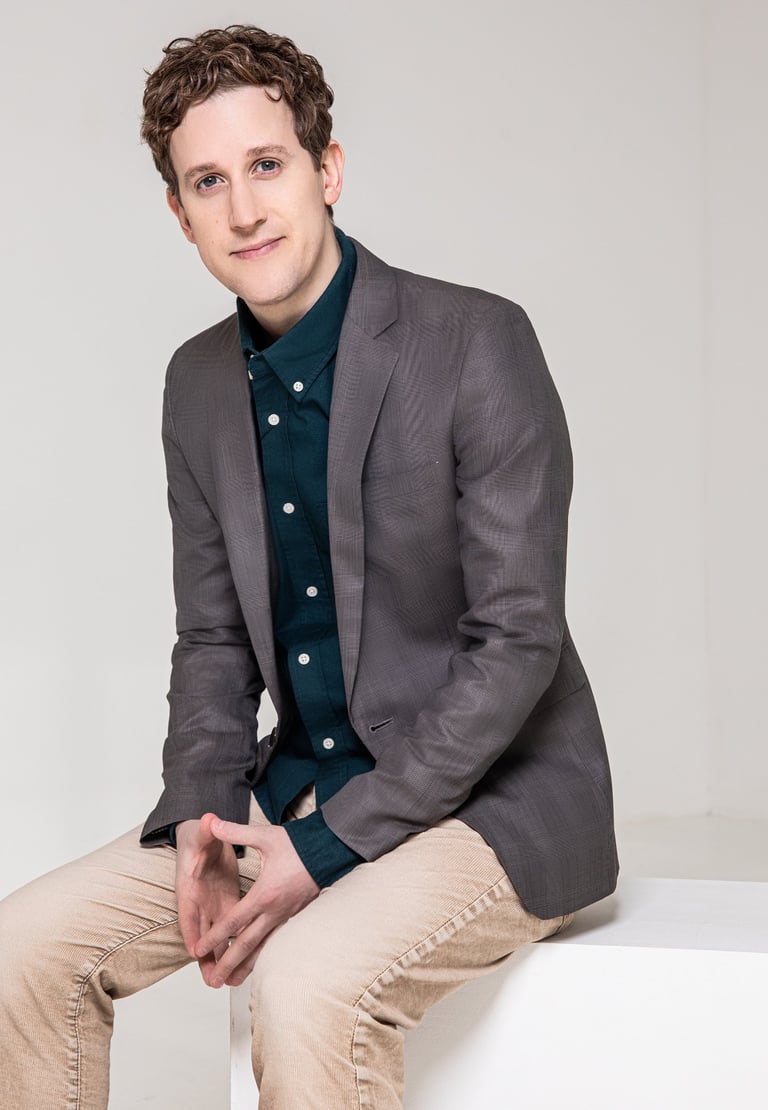

8. What challenges did you face while co-writing and co-directing Summoning Sylvia during the COVID-19 lockdown?
Firstly, the fact that everyone stepped out of lockdown and onto our set meant that we were all working together to figure out how to navigate our new post-pandemic normal and do the near-impossible by making an indie film. So, in addition to real-world challenges, we had the usual indie headaches: scheduling issues, financial issues, heatwave issues, and exhaustion issues. We learned how to put out proverbial fires and keep going, no matter what was thrown in our path. But Wes and I, alongside Cody Lassen who was our fearless lead producer, worked day and night with our outstanding cast and crew to make the best movie we could. Also, our set flooded with raw sewage, which complicated things as well.
9. Can you tell us more about your character Max Weinbaum in the play, and how you prepared for the role?
The biggest part of my preparation in playing Max has been getting my self-esteem in check. These past few years have taken a toll on me, and I don't know that I would be here if I didn't start believing I could be here. That has been a long and winding road. Then, within the play, Max feels like a puppy lost in traffic, so getting in touch with my own sense of play and wonder and delight has gotten me closer to Max and made the process all the more enjoyable.
10. As someone who has worked on both stage and screen, what are some of the key differences between the two mediums, and do you have a preference?
I have no real preference between the two, just gratitude that I have been able to exist in both. Every time I'm doing one, I tend to miss the other. In terms of differences, though, there is certainly an awareness about the size of performance depending on the venue, creating something more intimate for the screen and scaling it larger for the theatre. But the main difference? In the theatre, you get applause, on TV you get snacks.
11. Congratulations on the success of Summoning Sylvia! Can you share any interesting or funny stories from behind the scenes of making the movie?
Some of my favorite parts were the discoveries we made in post-production.
For instance, finding footage that we hadn't intended to utilize in the cut and employing it to create whole new sequences. For example, when our original opening wasn't working, we built a whole new montage from scraps of leftover footage. And that was all under the guidance of our brilliant editor Sara Corrigan. Also, on set, our crew had fun hiding creepy dolls around the house. That's always good for a jump-scare.
Actor: Alex Wyse’s I Photographer: Tyler Gustin
12. You collaborated with your writing partner Wesley Taylor on the creation and direction of Summoning Sylvia. Can you tell us about your experience working together and your collaboration process?
We wrote the entire script over Zoom in 2020 while Wesley was residing in North Carolina and I was in New York. We shared screens and ideas, and worked hard to find a unified voice. This collaborative spirit continued onto the set of the film, where we sometimes divided and conquered, and other times finished each other's sentences. We enjoy working together and are excited about each other's strengths. Our creative partnership is like any other marriage - we communicate, compromise, and support each other. In the end, we are thrilled with what we create when we combine our powers.
13. How did you become involved in the creation and starring role in the Emmy-nominated series Indoor Boys, and what was your favorite episode to film?
Wesley and I were both residing in Los Angeles when we decided to collaborate on a web short. It went well and we had a great time, so we continued to create more, resulting in twenty-four episodes of LGBTQ comedy and drama filmed over three years. Each episode had its own unique adventure, but my favorite would have to be Season 3, Episode 6 titled "Love Scenes." I'm proud of the unconventional storytelling techniques used in this episode, which was essentially our own version of the play La Ronde, as well as the fun transitions between scenes. Additionally, the entire main cast was featured in the episode. Indoor Boys is now available for viewing on Here TV.
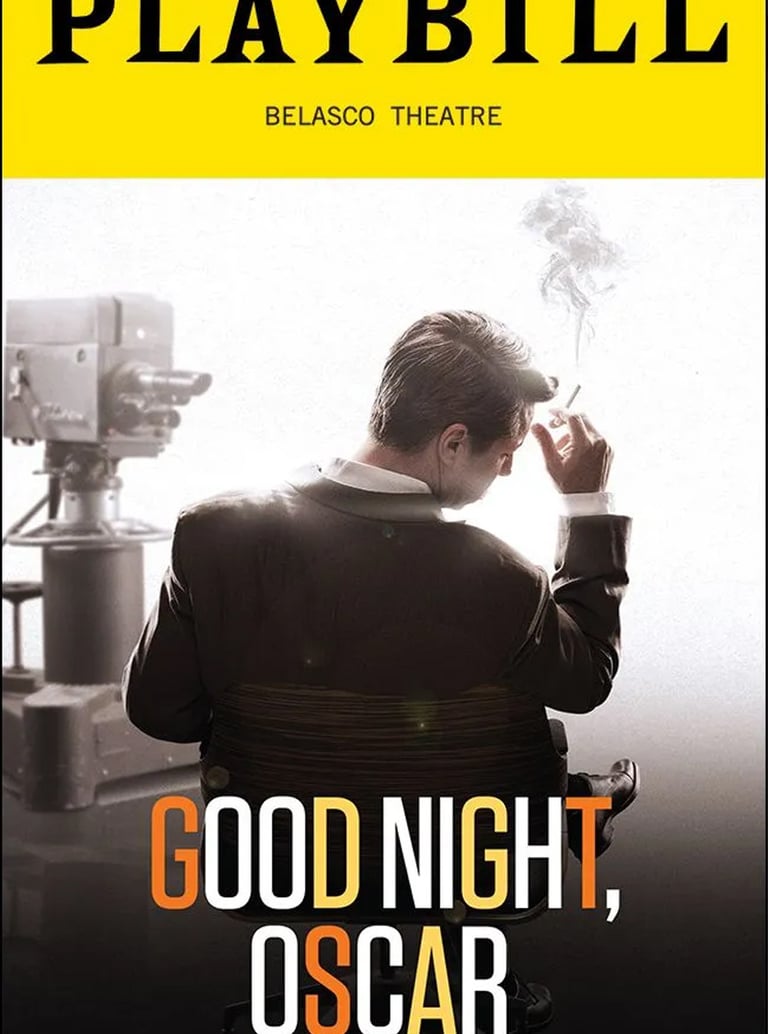

14. You've appeared in a variety of Off-Broadway and regional productions. Do you have a favorite role or show that you've worked on in that context?
I must mention the musical I co-wrote and starred in with Ben Fankhauser titled A Commercial Jingle for Regina Comet. We were the first new musical to open Off-Broadway after the pandemic. Check out our cast album! Ben and I worked hard for several years to create the sweetest, silliest show possible and we were honored to be part of bringing audiences back to the theater.
15. Your TV credits include a diverse range of shows, from The Bold and The Beautiful to The Marvelous Mrs. Maisel. Do you have a particular genre or type of role that you enjoy playing the most?
I often play characters with clipboards and scientists who have had their work stolen for chemical warfare. I know, quite the range. As for my favorite genre, I enjoy performing in sad comedies. It's a reflection of life.
16. Can you tell us more about your upcoming projects, and what audiences can expect to see from you in the near future?
Wesley and I have a few finished scripts, so we're working towards creating more movies, plays, and other projects. As for acting work, it's hard to say! We'll have to wait and see.
17. As an actor and writer, how do you approach creating and developing characters for your work?
A fun trick I use is to write for people who inspire me. For example, if I imagine Meryl Streep when I'm writing lines for a particular character, I can better envision how she moves, speaks, and interacts with other characters in a scene. When it's time to film, I'll let go of the Meryl image and allow the actor to bring their own interpretation to the role. Or, of course, we can always offer it to Meryl herself!
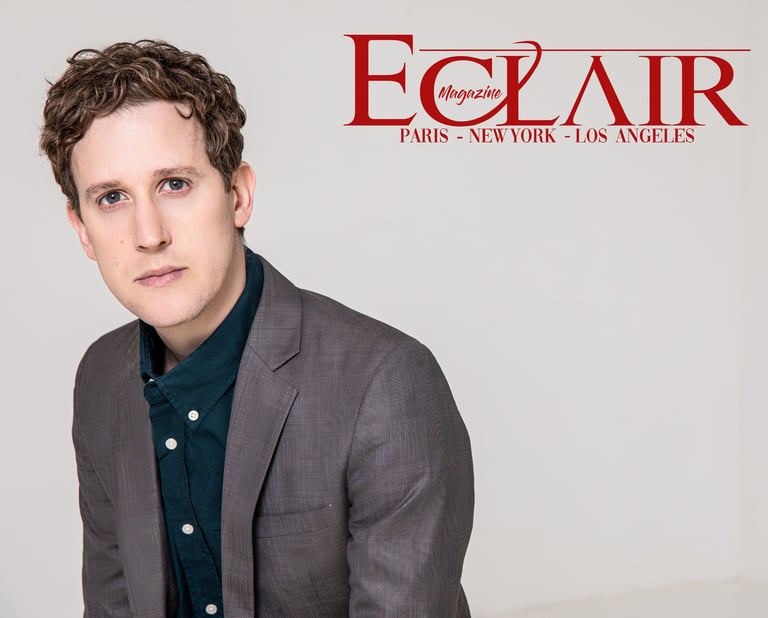

18. You have also worked as a producer on some projects. What do you enjoy most about that aspect of the industry, and how does it inform your work as an actor?
I loved being able to support work that I didn't generate and instead add fuel to someone else's fire, especially for a play as spectacular as "What the Constitution Means to Me." Being part of that producing team helped me better understand how the entire entertainment industry operates. As an actor, understanding the producing side of things has gotten me out of my own head. As a writer and director, it has helped me make decisions in service to making something more producible.
19. You have been involved in the industry for quite some time now. What advice would you give to someone just starting out in acting or writing?
Don't wait for anyone else to say yes to you. Just start by saying yes to yourself.
20. What has been the biggest lesson you have learned throughout your career in the entertainment industry?
Every time I experience disappointment and a door closes in my face, it has led to a different door opening. Slowly but surely, I am learning not to be undone by disappointments but to trust in the long game.
21. What are some of your hobbies or interests outside of your work in the entertainment industry?
A friend of mine has a funny answer to this. She says, "I've spent my entire life learning how to act, sing, and dance, and now I'm supposed to have hobbies?!" Anyway, when I'm trying not to think about the entertainment industry, I spend a lot of time reading and watching videos on astronomy in an effort to understand the scope of the universe and how tiny we all are.
22. Finally, if you could give advice to your younger self, what would it be?
When you don't see a reflection of yourself in television and movies, that doesn't mean you can't be a part of it. It only means it's waiting for you to fill that gap!
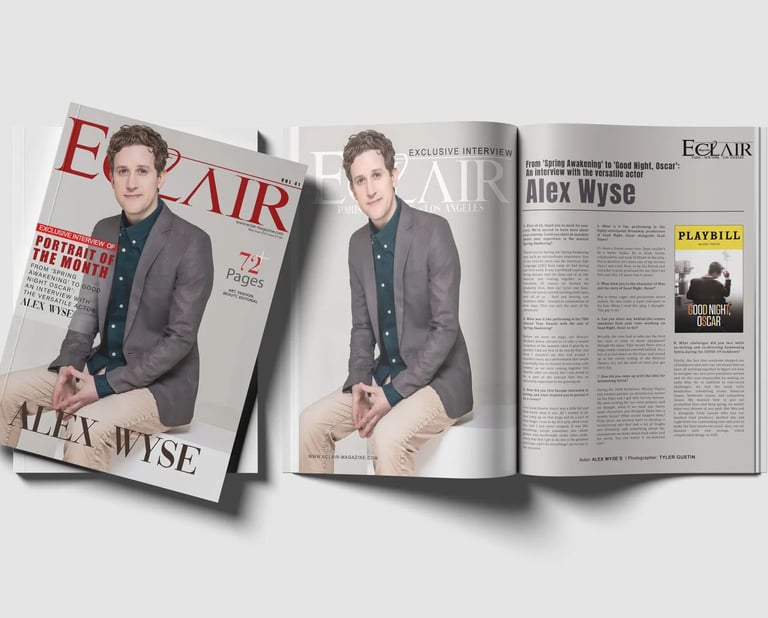

Quality, not quantity
We have made quality our habit. It’s not something that we just strive for – we live by this principle every day.
